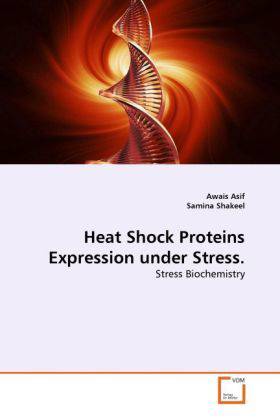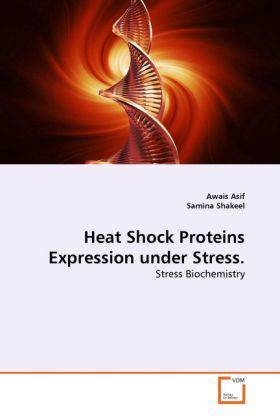
Bedankt voor het vertrouwen het afgelopen jaar! Om jou te bedanken bieden we GRATIS verzending (in België) aan op alles gedurende de hele maand januari.
- Afhalen na 1 uur in een winkel met voorraad
- In januari gratis thuislevering in België
- Ruim aanbod met 7 miljoen producten
Bedankt voor het vertrouwen het afgelopen jaar! Om jou te bedanken bieden we GRATIS verzending (in België) aan op alles gedurende de hele maand januari.
- Afhalen na 1 uur in een winkel met voorraad
- In januari gratis thuislevering in België
- Ruim aanbod met 7 miljoen producten
Zoeken
Heat Shock Proteins Expression under Stress.
Stress Biochemistry
Awais Asif, Samina Shakeel
Paperback | Engels
€ 62,45
+ 124 punten
Omschrijving
One of the "hottest" areas of current research involves a family of highly conserved stress proteins known as heat shock proteins (HSPs). These proteins are ubiquitous, occurring in all organisms from bacteria, plants and yeast to humans. Abiotic stimuli, such as heat, cold, water deficit, heavy metals, ozone, UV radiation and -irradiation effects the synthesis and accumulation of HSPs. Chloroplast Small Heat Shock Proteins are nuclear-encoded plastid localized HSPs, synthesized in response to heat stress in plants. Recently, it is demonstrated that Cp-sHSPs play an important role to protect photosynthetic electron transport during heat stress. We have studied the gene identification and expression of chloroplast specific small heat shock proteins under heat stress in Chenopodium album. The difference in expression pattern was seen at heat stress of 35°C to 40°C which gives the evidence of transcriptional or post transcriptional regulation. No transcript was seen at heat stress of 45°C, indicating the degradation of Cp-sHSP transcript at high temperature. Similarly, lack of transcript in control samples are shown that this gene is not transcribed at normal growth temperature.
Specificaties
Betrokkenen
- Auteur(s):
- Uitgeverij:
Inhoud
- Aantal bladzijden:
- 88
- Taal:
- Engels
Eigenschappen
- Productcode (EAN):
- 9783639280524
- Verschijningsdatum:
- 1/09/2010
- Uitvoering:
- Paperback
- Afmetingen:
- 152 mm x 229 mm
- Gewicht:
- 141 g

Alleen bij Standaard Boekhandel
+ 124 punten op je klantenkaart van Standaard Boekhandel
Beoordelingen
We publiceren alleen reviews die voldoen aan de voorwaarden voor reviews. Bekijk onze voorwaarden voor reviews.









